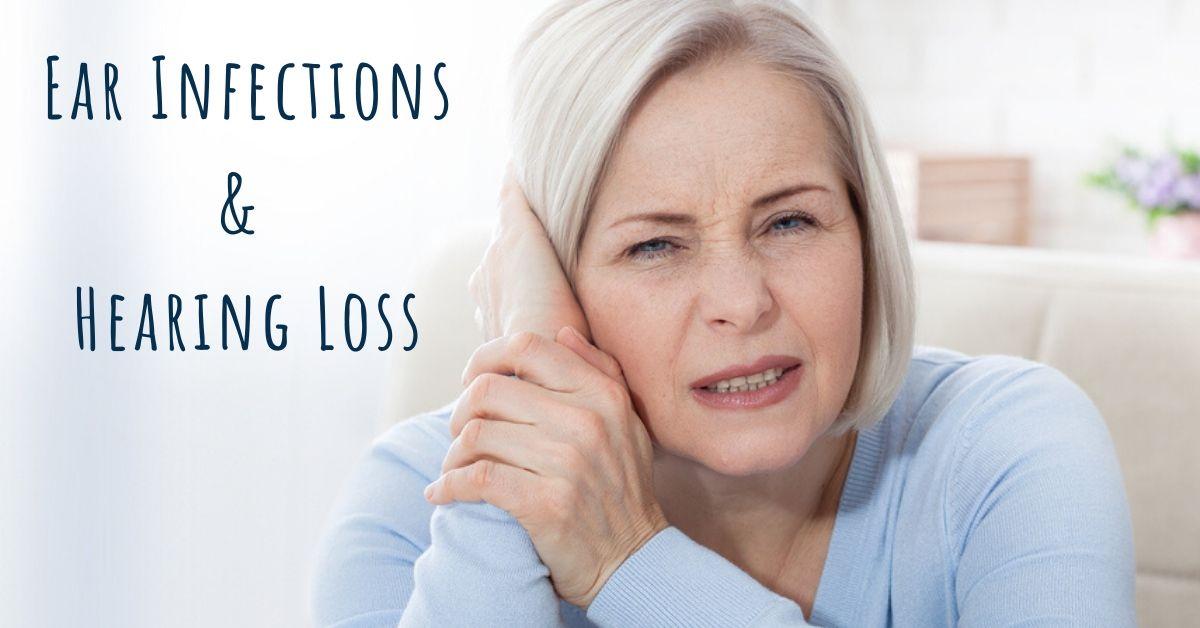There are plenty of things you can do to protect your hearing. Aside from wearing hearing protection in hazardously noisy conditions or restricting the use of headphones and earbuds, did you know you could help your hearing through promptly treating any ear infections?
The good news is that most ear infections don’t result in loss of hearing, and for those that do appear to be temporary. But hearing loss can be permanent in some severe cases. Let’s look at the severity of ear infections, which ones can be a danger to hearing, and how to know when to seek medical attention.
How ear infections could lead to hearing loss
There are several different forms of ear infections, and they tend to be classified according to where the disease occurs inside the ear canal.
Occasionally an ear infection may cause a temporary or permanent loss of hearing. This happens typically because the side effects of the infection prevent sound from getting through the inner ear through the ear canal or middle ear. If things sound distorted, it is known as a conductive hearing loss. Sounds may be heard as muffled or indistinct.
The types of ear infection can cause a temporary or reversible loss of hearing include:
- Ear canal inflammation (otitis externa): This disorder is also referred to as “swimmer’s ear,” but the leading cause is not the result of excessive water in the ear. Moist conditions in the ear could lead to inflammation, swelling, or buildup in the ear, which can block the passage of sound to the middle ear. Hearing usually recovers after the infection has left by itself.
- Infection of the middle ear (otitis media): Untreated middle ear infections can cause permanent damage to the central ear structures. Swelling and pus can block the movement of sound into the inner ear, resulting in a permanent loss of hearing. This, however, is uncommon. Hearing usually recovers after the disease has gone out on its own. Most ear infections get better by themselves, but antibiotics can still be required. Only a small number of ear infections cause permanent damage.
- Fluid in the space behind the eardrum (effusion otitis media): This can happen with an infection or without it. Fluid deposition may cause sound distortion or block its passage to the inner ear. Fluid behind the eardrum clears typically by itself, but if the liquid in the middle ear has infected, the eardrum can burst.
- Viral cochlear infection: This causes a sudden loss of hearing. It is believed that the viruses that cause this form of hearing loss are the same kinds that cause upper respiratory infections such as influenza or a cold. Hearing does not return, returns only partly, or maybe lost altogether.
Hearing loss from ear infections is usually temporary
Hearing damage from an ear infection is typically temporary and eventually subsides after treatment. Your doctor may choose to prescribe antibiotics to treat your ear infection. If the antibiotics cure the disease successfully, then your hearing will return to normal.
If you have a history of chronic ear infections, your doctor may insert a tube into your eardrum to help drain the fluid. Eliminating fluid buildup relieves the pain and discomfort that often accompanies an ear infection, and can avoid the fracturing of the eardrum.
A history of chronic ear infections may also result in tympanosclerosis, which is the tympanic membrane thickening or scarring. A perforated eardrum and tympanosclerosis harm eardrum sensitivity and lead to a decreased hearing acuity. If your hearing doesn’t return to normal after treatment, your doctor and hearing specialist can prescribe hearing aids to treat the loss of hearing.
What to do if you have an ear infection
Whether you think you have an ear infection, see a doctor. The earlier treatment is sought, the better. When you have an ear infection, and also have hearing problems, you should see a doctor followed by a hearing specialist.
If there is a permanent hearing loss, hearing aids will help you hear again. To get more information about hearing aids, make an appointment with us for a consultation.

